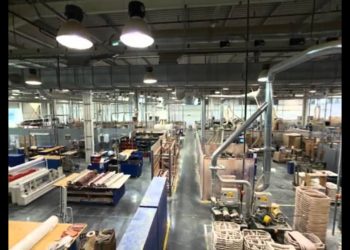Finding Your Perfect Career Path
Embarking on a journey to find work that truly suits you is both exciting and transformative. A fulfilling career path with guidance from resources like JKCP goes beyond a paycheck—it reflects your passions, strengths, and values. Katherine Phillips, an experienced educator and career advisor from JKCP, emphasizes the importance of aligning your career with your unique goals to achieve lasting satisfaction. Whether you’re starting fresh or seeking a change, the process involves self-discovery, strategic planning, and resilience. This guide offers practical steps to help you identify and secure a job that feels like a natural fit, ensuring long-term job satisfaction and personal growth.
Assessing Your Skills and Interests
To find work that resonates, begin by evaluating your job skills and passions. Self-reflection is key to understanding what drives you. Consider journaling about past experiences or creating a skills inventory to pinpoint your strengths. Ask yourself what tasks energize you and where you excel. This clarity helps identify roles that align with your career fit. For guidance, reflect on these questions:
- What activities make time fly for you?
- Which skills do others frequently praise you for?
- What tasks do you find most rewarding?
- Are there hobbies you could turn into a career?
These prompts spark insights into your ideal work environment, setting a strong foundation for your job search.
Using Self-Assessment Tools
Career assessment tools can deepen your self-understanding. Platforms like Myers-Briggs, CliftonStrengths, or free job fit tests online analyze your personality, preferences, and strengths. For example, a test might reveal you thrive in collaborative settings, pointing toward team-oriented roles like project management. For a more modern, AI-driven option that maps lived experiences to measurable skills and suggests personalized career pathways, consider the LifeVitae career assessment. These tools provide data-driven insights, helping you narrow down industries or positions that match your profile. Explore reputable platforms, but don’t rely solely on results—use them as a starting point for further exploration.
Identifying Transferable Skills
Your past experiences hold a treasure trove of transferable skills that can fuel a career change. Skills like communication, problem-solving, or leadership aren’t tied to one job—they apply across industries. For instance, organizing community events showcases project management, while tutoring highlights teaching and empathy. Reflect on all experiences, from volunteering to hobbies, and list skills that could shine in new roles. A retail worker’s customer service expertise, for example, could translate to corporate client relations. Recognizing these abilities opens doors to unexpected opportunities.
Aligning Work with Your Values
A job that aligns with your core values fuels job satisfaction. Values like work-life balance, creativity, or social impact shape how you perceive your work. To clarify what matters most, consider these common work values:
- Autonomy: Do you prefer independence in your tasks?
- Collaboration: Is teamwork essential for you?
- Impact: Do you want to make a difference in your community?
- Stability: Is job security a priority?
Once you identify your priorities, seek roles that reflect them. A mismatch here can lead to frustration, so this step is crucial for long-term fulfillment.
Researching Company Culture
A company’s culture defines your daily experience, making company culture research essential for job alignment. Browse company websites, read mission statements, and check reviews on platforms like Glassdoor. Look for signs of values in action—does the company promote flexibility or community involvement? Reach out to current employees via LinkedIn for candid insights. A culture that mirrors your values, like a focus on innovation or inclusivity, ensures you thrive in your role.
Evaluating Job Benefits
Job benefits often reflect a company’s values and impact your lifestyle. Beyond salary, consider perks like remote work options, health insurance, or professional development programs. If flexibility is a career value, prioritize roles with hybrid schedules. For example, a parent might value generous leave policies, while a lifelong learner might seek tuition reimbursement. Weigh benefits against your needs to ensure the job supports your personal and professional goals.
Exploring Career Options
Career exploration is about casting a wide net to discover possibilities. Dive into online resources like LinkedIn or O*NET to research industries and roles. Conduct informational interviews with professionals to learn about their day-to-day work. Job shadowing, even for a day, offers a firsthand glimpse into a career. These proactive steps help you find a career that excites you, ensuring you’re not settling for the first opportunity that comes along.
Leveraging Networking Opportunities
Job networking unlocks hidden career opportunities. Connect with professionals on LinkedIn, attend industry webinars, or join local career fairs. Building relationships can lead to referrals or insider tips about unposted jobs. To network effectively, try these strategies:
- Send personalized LinkedIn messages to professionals in your field.
- Attend virtual or in-person industry events to meet peers.
- Join online communities related to your target industry.
- Follow up with contacts to maintain relationships.
A strong network amplifies your job search and provides support throughout your career.
Trying Short-Term Roles
Freelance work, internships, or temp roles are excellent for career testing. These opportunities let you try a field without long-term commitment. For example, freelancing as a graphic designer can reveal if creative work suits you. Temp roles in different industries build experience and clarify preferences. Platforms like Upwork or local staffing agencies can connect you with short-term gigs, helping you refine your career path.
Building a Strategic Job Search Plan
A job search plan keeps your efforts focused and efficient. Set clear goals, like applying to five jobs weekly, and identify target industries or companies. Use job boards like Indeed or niche sites for specialized fields. Track applications in a spreadsheet to stay organized. Persistence is vital—tailoring each application to highlight your career fit increases your chances of landing interviews.
Optimizing Your Resume and Cover Letter
A tailored resume and cover letter are your first impression. Study job descriptions and mirror their language to highlight relevant job skills. For example, if a role emphasizes teamwork, showcase collaborative projects. In your cover letter, weave in your work values to demonstrate alignment. Keep both concise yet impactful, focusing on achievements that prove your job application stands out.
Preparing for Interviews
Interviews are your chance to showcase career fit. Research the company thoroughly to understand its mission and culture. Practice answering questions like “Why do you want this role?” to articulate your values and skills. Ask thoughtful questions, like “How does the team collaborate?” to show engagement. Prepare with these job interview tips:
- Rehearse answers to common questions aloud.
- Research the company’s recent achievements.
- Prepare questions to ask the interviewer.
- Dress appropriately for the role’s culture.
Confidence and preparation make you memorable.
Overcoming Common Challenges
The job search can be daunting, with career challenges like competitive markets or fear of change. Stay motivated by setting small, achievable goals, like updating your LinkedIn profile. If you lack experience, focus on transferable skills or take online courses to upskill. Reframe setbacks as learning opportunities to maintain momentum.
Managing Career Transitions
A career transition to a new industry requires strategy. Identify overlapping skills and highlight them in applications. For example, a teacher moving to corporate training can emphasize communication and instruction expertise. Consider certifications or part-time roles to ease the shift. Upskilling through platforms like Coursera builds confidence and credibility.
Staying Resilient in Rejection
Job rejection stings, but it’s part of the process. Seek feedback from interviewers to refine your approach. Review your resume or practice interviews to identify improvements. Stay positive by focusing on your strengths and celebrating small wins, like securing an interview. Career resilience comes from persistence and a growth mindset.
Final Thoughts
Finding work that fits you is a journey of self-discovery and strategy. By assessing your skills, aligning with your values, exploring options, and building a targeted plan, you position yourself for success. Overcoming challenges with resilience ensures you stay on track. Stay committed to your goals, and you’ll find a career path that brings fulfillment and growth. Keep exploring, networking, and refining your approach to achieve career success.











































































